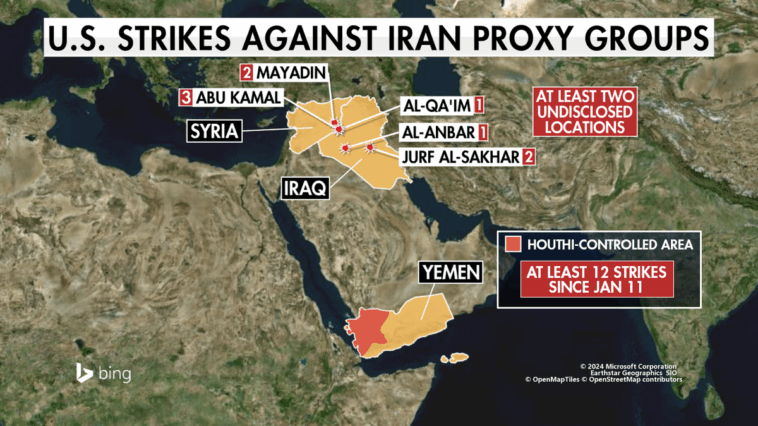Iran has lately issued some worrying declarations about its intentions to escalate its enrichment of its uranium stockpile, already having the potential to be processed into near-weapons-grade material. This defiance comes only a few days subsequent to a bombing raid conducted by the United States on the Middle Eastern nation’s territory. This act of aggression from Iran further escalates tension in the volatile region, and reflects an unwillingness to retreat from its nuclear pursuits.
The recent developments in the region emerged following statements from Israel that disclosed that a portion of Iran’s nuclear fuel intact despite the US-led air raids during a recent conflict dubbed the 12-Day War. This revelation raises concerns about the potential risks associated with Iran’s ability to maintain and perhaps even advance its nuclear capabilities amid ongoing hostility and aggression.
Iran’s candid acknowledgement that Operation Midnight Hammer had indeed inflicted serious destructive impact couldn’t be denied. American B-2 Spirit bombers had successfully deployed more than a dozen GBU-57 Massive Ordnance Penetrator bunker buster bombs during the operation, causing extensive damage to their targets.
Iranian officials, however, maintained a defiant stance, stating that this large-scale bombing campaign will not discourage their objectives of uranium enrichment. According to Tehran, their uranium enrichment efforts aim at peaceful civil utility.
The current enrichment level of Iran’s uranium stockpile sits at 60%. This is significantly greater than the typical levels used for peaceful civilian applications, but not quite advanced enough to be considered weapons-grade. The mere existence of this stockpile could hypothetically contribute to the production of more than nine nuclear bombs, if further enhanced to a level of 90% enrichment.
A representative from the National Security and Foreign Policy Commission of the Iranian Parliament, Alaeddin Boroujerdi, declared to Mehr News Agency, ‘We will never surrender our legitimate right to enrich uranium’. ‘Enrichment is a sovereign right that we will continue to pursue, based on our domestic necessities. Even bombardments cannot erase this knowledge — it will only be reinforced.’
Additionally, the European nations of the United Kingdom, France, and Germany have jointly affirmed that they will reinstate stringent UN sanctions on Iran by the end of August. However, this decision will be reconsidered if there is substantive advancement towards a nuclear deal. This move suggests a sense of urgency from the international community to mitigate the nuclear threat posed by Iran.
Ali Velayati, an advisor to Iran’s supreme leader Ayatollah Ali Khamenei, refuted any notion that negotiations with the United States are contingent on the cessation of uranium enrichment. He was quoted by the state news agency IRNA stating, ‘Negotiations which necessitate us ceasing enrichment are negotiations we will not engage in.’
Boroujerdi reiterated the unwillingness to cease uranium enrichment, promising that the Iranian regime will not bow down to Western demands for zero enrichment. The double-downing on their uranium enrichment initiative shows Iran’s determination to push through international pressure.
The International Atomic Energy Agency (IAEA), considered the universally eminent nuclear watchdog, warned that Iran could resume its uranium enrichment endeavors in just a few months. The specter of Iran engaging in nuclear activities is alarming to the international community.
Mystery surrounds the fate of 408.6 kilograms of uranium which Iran allegedly extracted from its most sensitive locations prior to the US strikes. The uncertainty fuels concerns about where Iran may have concealed this substantial amount of nuclear material within its national boundaries.
Despite the worrying prospect, an unknown official from Israel played down fears about the remaining nuclear stockpile, expressing confidence in their intelligence capabilities to detect any such nuclear activities. The Israeli official remained firm that any attempt by Iran to recover this material would be immediately discovered.
Rafael Grossi, Director-General of the IAEA, conceded that Iran could potentially still possess stockpiles of enriched uranium. ‘There needs to be a certain point where this situation is clarified,’ Grossi stated, acknowledging the ambiguity surrounding Iran’s nuclear capacity.
Grossi elaborated, ‘There’s a need for our organization to be in the position to verify, to corroborate what exactly is present, and where it is and what transpired.’ The uncertainty underscores the IAEA’s important role in overseeing such delicate matters on an international scale.
The 12-Day War began in earnest on June 13, when Israel initiated Operation Rising Lion. This complex bombing campaign targeted Iran’s military nuclear sites, thus ratcheting tensions between the two nations to newer heights.
In retaliation, Iran responded by launching a series of ballistic missiles towards Israeli territory on a daily basis through the entire period of conflict. However, no strategic targets within Israeli borders were hit, indicating a failure on Iran’s part to meaningfully counterattack.

